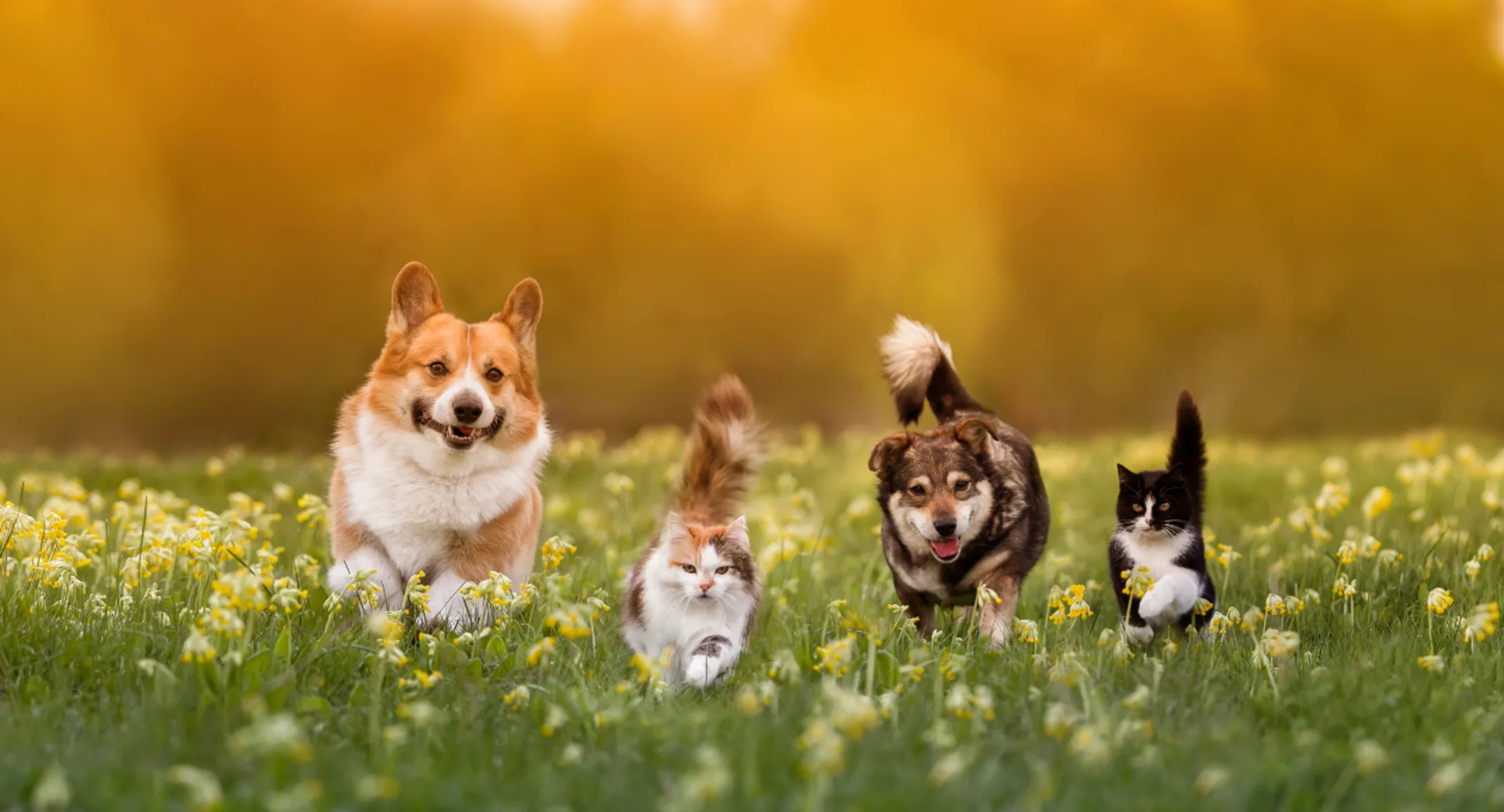Pet Wives’ Tales and Myths
Dogs & Cats

Dr. Marilyn Brink
A Wet, Cold Nose Means a Healthy Dog.
A dog’s nose can be warm or cold, and it has no bearing on their health. The moisture level often depends on how recently the dog has licked its nose. To accurately assess your dog's body temperature, always use a thermometer.
Cats Need Milk in Their Diet.
While cats may enjoy the taste of milk, it is not a necessary part of their diet. In fact, milk can cause some cats to experience vomiting and diarrhea. Many adult cats lack the enzyme lactase, which is needed to digest milk, as this enzyme is primarily present during early kittenhood.
A Wagging Tail Means a Friendly Dog.
Tail wagging is a sign of excitement, not necessarily friendliness. A dog may wag its tail because it is happy, but it can also do so when anxious or stressed.
Females Should Have One Litter Before Being Spayed.
There is no evidence to support that having a litter is beneficial for a female pet’s health. In fact, pregnancy carries risks such as uterine infections or complications during delivery that may require surgery. Spaying before the first heat cycle can nearly eliminate the risk of future breast cancer in dogs and cats.
Garlic and Essential Oils Work to Treat Fleas.
These home remedies are not only ineffective but can be harmful. Garlic is toxic to pets, and essential oils can cause severe health issues in cats, such as liver failure and respiratory problems. It’s best to use veterinarian-recommended flea treatments that are safe and reliable.
A Scooting Dog Has Worms.
Scooting can be a sign of discomfort in a dog’s perineal area, but it’s not necessarily due to worms. Other causes include anal sac problems or inflammation. A dog that scoots persistently should see a veterinarian to determine the underlying cause.
A Purring Cat is a Happy Cat.
While purring often indicates contentment, cats may also purr when they are in pain or seriously ill. It’s important to consider the context and any other signs of distress.
Dogs Have a Clean Mouth, So They Should Be Allowed to Lick Their Wounds.
This is a dangerous myth. Dogs’ mouths contain a lot of bacteria, which can cause infections if they lick an open wound. Cats, with their barbed tongues, can do even more damage. It’s best to keep pets from licking their wounds to prevent further trauma.
Feeding Raw Eggs Will Improve a Dull Coat.
Raw eggs pose a risk of Salmonella infection, which can cause serious gastrointestinal issues. Instead, consult your veterinarian for safe dietary advice and supplements. Sometimes, a dull coat may indicate an underlying health condition.
Dogs That Don’t Interact with Other Pets Don’t Need Heartworm Prevention.
Heartworms are transmitted by mosquitoes, not through direct contact with other pets. Even indoor dogs can be bitten by mosquitoes that find their way inside. Heartworm preventatives work by eliminating immature worms in the bloodstream before they grow into dangerous adults in the heart. Heartworm disease is life-threatening and difficult to treat, so prevention is crucial.
